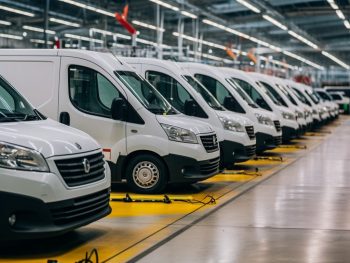VEV, the e-fleet solutions provider backed by energy giant Vitol, has shared its 2023 fleet industry insights and critical success factors for fleet electrification in 2024.

The business, which has supported large commercial fleets through the challenges of EV transitions over the last 12 months, said both macro-economic and sector challenges have presented hurdles for fleets this year.
From inflation rate increases and recession fears, to reservations around sufficient charging infrastructure, fleet owners have been concerned with the level of investment needed to electrify, and the practicalities of developing and executing a robust electrification plan.
Mike Nakrani, CEO of VEV, said concerns have been compounded by the ICE ban delay, with some deeming the move to have shifted the goalposts and requiring a rethink.
But he added: “It is essential for fleets to recognise that these challenges should not detract from the huge opportunity that electrification offers and the benefits of starting now. When correctly implemented, electric fleets can save energy and maintenance costs, bolster sustainability credentials and provide access to low carbon contracts. Also, electrification and in turn digitisation provides more efficient operations enabling lower costs and higher margins versus today’s diesel fleets. The fleets that are recognising this now will maximise their value over the next two years and get an edge over their competitors.”
And VEV says fleets are set for a critical turning point.
As part of its consulting practice, it’s revealed that fleets are increasingly recognising the importance of an optimised power supply. From identifying the right energy sources and tariffs to analysing grid capacity, evaluating accurate requirements for EV charging, and designing microgrids with solar generation and battery storage, it’s essential for fleets to make informed, data-driven decisions to efficiently power their fleets at the lowest possible cost.
Mike Nakrani continued: “Power supply, cost optimisation and upskilling for EVs are the key factors fleets need to prioritise next year. Support such as the Government’s recently announced £70m scheme for boosting motorway service area charging, and its commitment to install 300,000 public electric vehicle charge points by 2030, are welcomed and will help reinforce confidence in EV range. However, fleets themselves still need to work smartly to develop their own optimised charging solutions and vehicles within their budgets.
“Working with an electrification partner to upskill their teams on obtaining vehicle and energy data, interpret it, and use it to make better decisions is also critical. Fleets doing this are already seeing a competitive advantage in many of their use cases and those that follow suit will set themselves up for success next year and for years to come.
“We predict an upsurge in the adoption of electrification-as-a-service next year to help manage the upfront financial burden. It’s a model that moves the EV investment from capex to opex through a managed service rather than purchasing the entire fleet and infrastructure, and it’s one that fleet managers are increasingly becoming interested in.”

